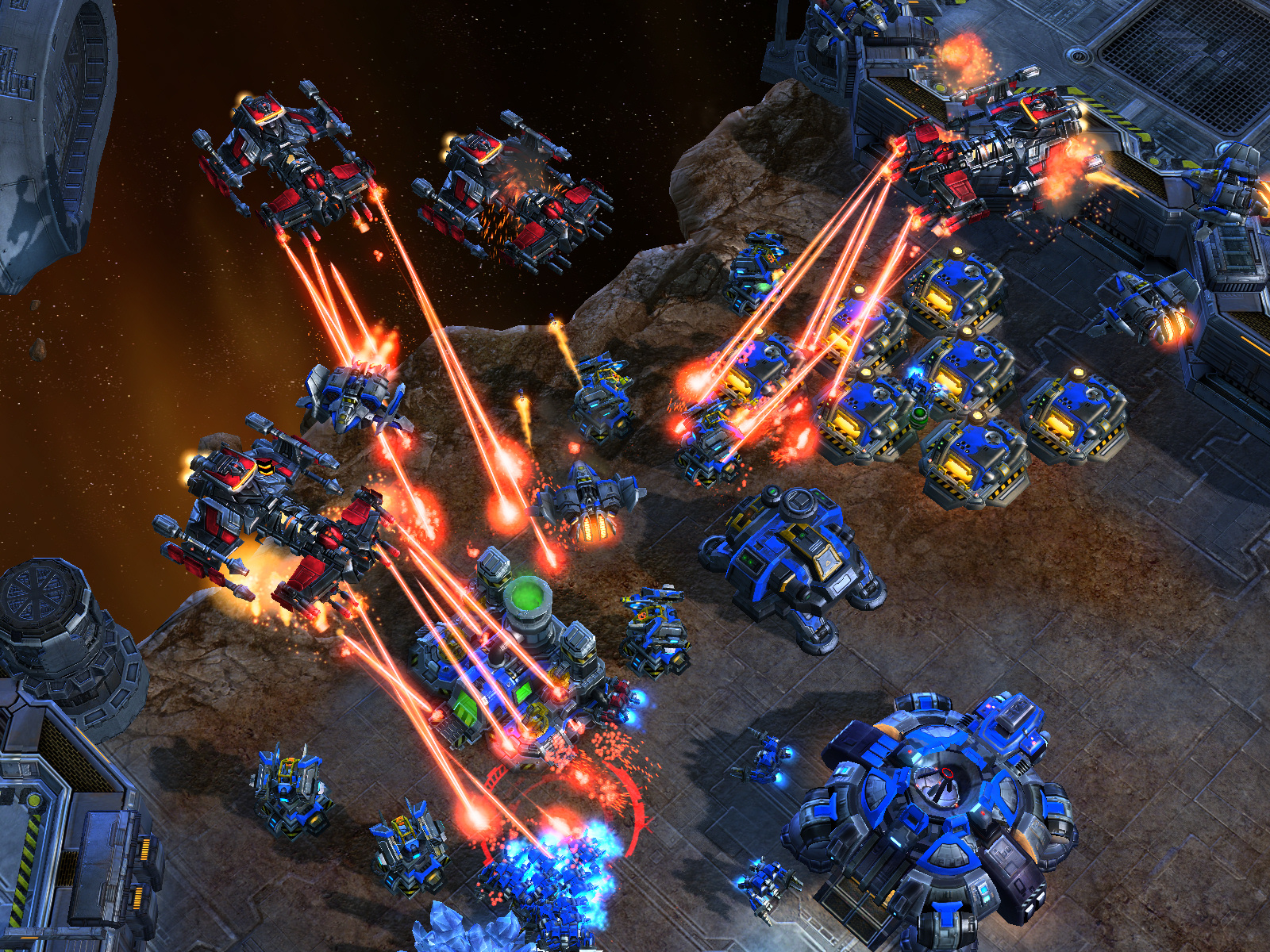What is the purpose of a sequel? From a corporate perspective it’s a means of establishing a brand, a franchise, and increasing revenue through recognition. As a fictional work it’s to expand the universe, grow the narrative and revisit familiar characters. What is the purpose from a game perspective? Chess might have evolved over centuries but it was a gradual process, and it’s unlikely to change to any substantial degree in the near future. We are not expecting Chess 2.0 any time soon. The rules of most competitive games change subtly over time but the core vocabulary of the game changes little, even if the offside rules change slightly Soccer is still recognisably the same game it was twenty years ago, at least in terms of its fundamental rules.

StarCraft as a competitive multi-player title has seen unprecedented success, especially in South Korea, players have developed and honed tactics over years of play. What will happen when the sequel is released? Is StarCraft II designed to replace StarCraft or to compliment it? Blizzard seem keen for StarCraft II to appeal to the those involved in competitive play. This is obviously a good audience to target as they have a built in enthusiasm for the game, but after spending years playing with the original game can they really be expected to invest more time into learning the changes in the sequel? Will their skills transfer? How much can StarCraft II change from its predecessor before the investment required to learn its intricacies becomes too much?
Warhammer 40K: Dawn of War, and Warhammer 40K: Dawn of War II though superficially similar games appear to be taking very different approaches to their game mechanics. The former is focused on base building, territorial control and combat between a number of combined arms units. The sequel looks to be focusing on smaller scale combat, taking a more tactical role playing approach, a squad combat title more than a real time strategy game. Relic have the opportunity to appeal to two different audiences with these titles, providing two complimentary experiences. These different audiences will only develop if Relic and THQ choose to support both titles in the years after the release of the sequel. How likely is this?
It is said that art is never finished it is merely abandoned, game development is rife with stories of cut features and unbalanced mechanics. These are obvious targets to focus on first when working on a sequel, but with the game now in the hands of players the fact that those specific features are missing, or that those mechanics are unbalanced has become part of what makes the game what it is. Changes to these features might move the game closer to the developers original intent but possibly away from what made it resonate with consumers.
So what is the purpose of a sequel to a successful game from a ludic perspective? To improve on and refine the mechanics, or to attempt to provide a similar aesthetic experience through different mechanics? Is the purpose of a sequel to replace the original? To compliment it? Or is it to provide a counter to the original, an antithesis with a third title potentially providing a synthesis of ideas from the first two titles?
The answers to these questions seems as manifold as the titles which inspire them.
2 replies on “Sequels: Expectations.”
Given how much of an overhaul Starcraft II appears to be in terms of units and their abilities, I’m curious if the sequel will sell very well in S. Korea. Those guys have literally dedicated years to mastering the original and playing at lightning speed. Any change, any tweak of that system, might actually be rejected instead of accepted like in the West. I mean…if you changed all the positions and plays in football, the values and tactics of various players would change drastically in response as well. Some people might not be into that.
I liked your point about Dawn of War II…one might as well make a different game if you’re going to do a sequel.
This is a very interesting topic and timely in my case. Last night I had a long conversation about Fallout 3 with my housemate. This friend of mind adored Fallout 1 and 2, but after watching a gameplay trailer for Fallout 3 he was disheartened. Specifically, he did not like the first-person camera and the real-time combat. He considers this title “not Fallout”.
Though I understand his cynicism towards a developer who so easily change established game mechanics (what else might they want to change?), surely we can call a game set in the same universe a sequel. How much can you change before your game is just a skin of a previous title on something completely different designed to make a fast buck? Does the intention of developing studio matter? I’m sure many at Bethesda loved the Fallout series and wanted to add something genuine to the franchise. But if they change too much, what game are they really making?
I for one look forward to Fallout 3. If I wanted the same mechanics I could just play the first titles. But I don’t have as much of a emotional connection to the franchise. My friend would have been satisfied if it was called Fallout: [Subtitle name]. Anyway, interesting questions. I look forward to reading more of your thoughts.